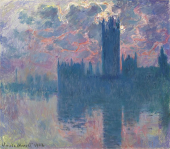
Renowned singer Dua Lipa, known for her chart-topping hits like "Levitating" and "IDGAF," has expressed her concerns about the UK government's rhetoric regarding
immigrants, including those from Albania. In an interview with The Sunday Times, the 27-year-old English-Albanian artist revealed that she was hurt by Home Secretary Suella Braverman's remarks in the Commons last November, where she spoke of an "invasion" of immigrants and specifically mentioned "Albanian criminals."
Reflecting on the issue, Dua Lipa stated, "All those words thrown around about immigrants? I always felt London was an amalgamation of cultures. It is integral to the city. So when you hear the government talk about Albanians, for example, it hurts. It's short-sighted and small-minded, but it's unfortunately how many people think."
The singer highlighted the need for empathy and understanding, acknowledging the hard work and contributions made by immigrants who come to the country out of necessity and for the well-being of their families. She stressed that despite efforts to change the rhetoric, there will always be individuals who hold the belief that "immigrants are coming into the country and taking jobs!"
Notably, Dua Lipa's comments come in response to Suella Braverman's previous statements, where she claimed that there had been a surge in Albanian arrivals and criticized claims for asylum by questioning their legitimacy. Braverman also expressed doubts about Albanian migrants claiming to be victims of modern slavery, citing Albania's participation in international agreements against human trafficking.
These remarks made by the Home Secretary faced criticism at the time, with the Prime Minister of Albania, Edi Rama, condemning them for fueling xenophobia. Dua Lipa's candid remarks shed light on the importance of recognizing the diversity and contributions of immigrants, urging for a more empathetic and inclusive approach to immigration discourse in the UK. Photo by Raphael Pour-Hashemi, Wikimedia commons.



































